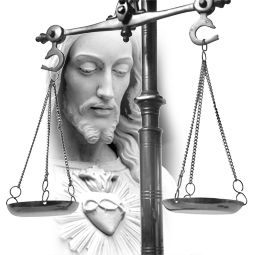THE DIFFERENCE IS IN THE DETAILS
- Charles
- 23 sept. 2023
- 4 min de lecture
Reflections for the twenty-fifth Sunday in Ordinary Time: Isaiah 55:6-9, Philippians 1:20c-24, 27a, & Matthew 20:1-16a

“For my thoughts are not your thoughts, nor are your ways my ways”, says the LORD in the first reading today. Part of our vocation as disciples is the task to learn to look through God’s optic, discern His perspectives, and enter into the mystery of the One who is so close, and yet so far. The liturgy of the day presents three crucial themes of reflection to illustrate this point. How are God’s thoughts and ways different to ours? The difference is in the details!
1. Hiring or Gathering:
The landowner hires five different sets of workers at various times during the day: 6 a.m., 9 a.m., noon, 3 p.m. and again at 5 p.m., An interesting detail: the mission entrusted to them is not “to work in his vineyard”! Each of these five crews is charged with the single mission “to enter the vineyard” (mentioned four times in the Gospel, 20:2,4,5,&7). While hiring, in our parlance, is necessarily oriented towards work, the explicit command of the landowner is for the labourers to “enter” this body that is humanity, the Church, and the society. The landowner “gathers” the labourers, each in his own time, way, and pace, to “be” and “become” part of a new reality that Jesus terms the Kingdom of God, an organic link (vineyard) that unites them all.

This logic is understandably difficult for us as it was for the workers of the first hour. It is not fair! While we value a person for what he/she can do, contribute, or accomplish, God values a person for what he/she is, can be or become. In a world, where everything is a commodity that can be bought or exchanged, justice dictates that everyone should receive in proportion to what they “do” in a relationship of give and take. For God, however, you are valuable for what you “are”. Yes, He loves you for who you are but he refuses to leave you that way”. If only we offered our availability (the eleventh-hour workers refused to give up even at 5.00 p.m.), God would gather us and help us enter His Kingdom.
2. Discriminatory or Distributive Justice?
Another detail: when the landowner hires the first set of labourers, he agrees to pay them the usual daily wage (one denarius). However, the next three sets of labourers get a different promise: “I will give you what is just”. For those hired at the eleventh hour, there is no mention of a pay even. Finally, when it was time for the wages, they were paid the same as those who had toiled throughout the day. The latter grumble, “These last ones worked only one hour, and you have made them equal to us, who bore the day's burden and the heat”. The point of contention is not just the pay but also the fact that “they have been made equal to them”.

The logic of human justice operates on the principle of proportion (so many hours, so much money) and therefore necessarily creates groups (rich and poor, haves and have-nots, etc.,). God’s logic, on the other hand, is not proportional but redemptory. God is not partial for he pays the day’s wage to all of them. His justice is restorative and distributive. The “people who have to wait all day long to get hired” have the same needs as those who were hired in the morning. They too have families to feed and bills to pay. In hiring a group of people that no other manager in town considered worth the trouble of hiring, the landowner clarifies his notion of justice: “from each according to his ability, to each according to his needs” (Marx, Critique of the Gotha Programme).
3. First Vs last :
The punchline of the parable hides another interesting detail: “Thus, the last will be first, and the first will be last". In its original context, this alludes to the difference between the Jews (the workers of the first hour/ first beneficiaries of the covenant) and the recent converts (the workers of the eleventh hour). How can those who have been God’s chosen people receive the same reward (salvation) as those who have recently embraced the Church’s faith? God effects not just a reversal of positions but a reversal of values. He challenges the Matthean Church to quit its logic of hierarchical ranking to embrace the logic of koinonia (communion) This conversion is essential to the synodal path that we have undertaken as a Church.

Theologian Bernard Lonergan insists, "Communication among the different sections of the Church and the society is the fruit of a long journey of reflection that involves acknowledging the equal dignity of all and articulating the truths brought to light by the synodal process". Our witness to the equality of all human persons can become credible only when we root out elements of injustice, discrimination, seclusion and abuse of authority in our way of being Church. Without this, the synodal process of conversion of the Church cannot attain its desired results. There is no synodality or communion possible in a context of abuse of power, manipulation, divisions, lies, politics of exclusion, etc, Justice is realised in true communion, coherent action, and respect for each and every one. Jews or Gentiles, slaves or free men, men or women, clergy or laity, all of us share one faith and therefore also the one mission of “gathering” each other in God’s vineyard, each in his/her way, time, and pace.




Commentaires